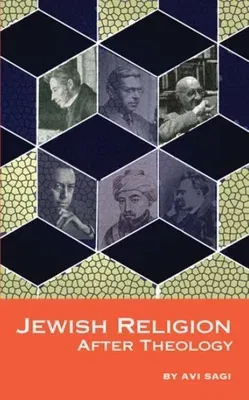Avi Sagi
(Author)Jewish Religion After TheologyPaperback, 1 May 2009

Qty
1
Turbo
Ships in 2 - 3 days
In Stock
Free Delivery
Cash on Delivery
15 Days
Free Returns
Secure Checkout

Part of Series
Emunot: Jewish Philosophy and Kabbalah
Print Length
264 pages
Language
English
Publisher
Academic Studies Press
Date Published
1 May 2009
ISBN-10
1934843563
ISBN-13
9781934843567
Description
Product Details
Author:
Book Format:
Paperback
Country of Origin:
US
Date Published:
1 May 2009
Dimensions:
23.39 x
15.6 x
1.4 cm
ISBN-10:
1934843563
ISBN-13:
9781934843567
Language:
English
Location:
Boston, MA
Pages:
264
Publisher:
Weight:
371.95 gm